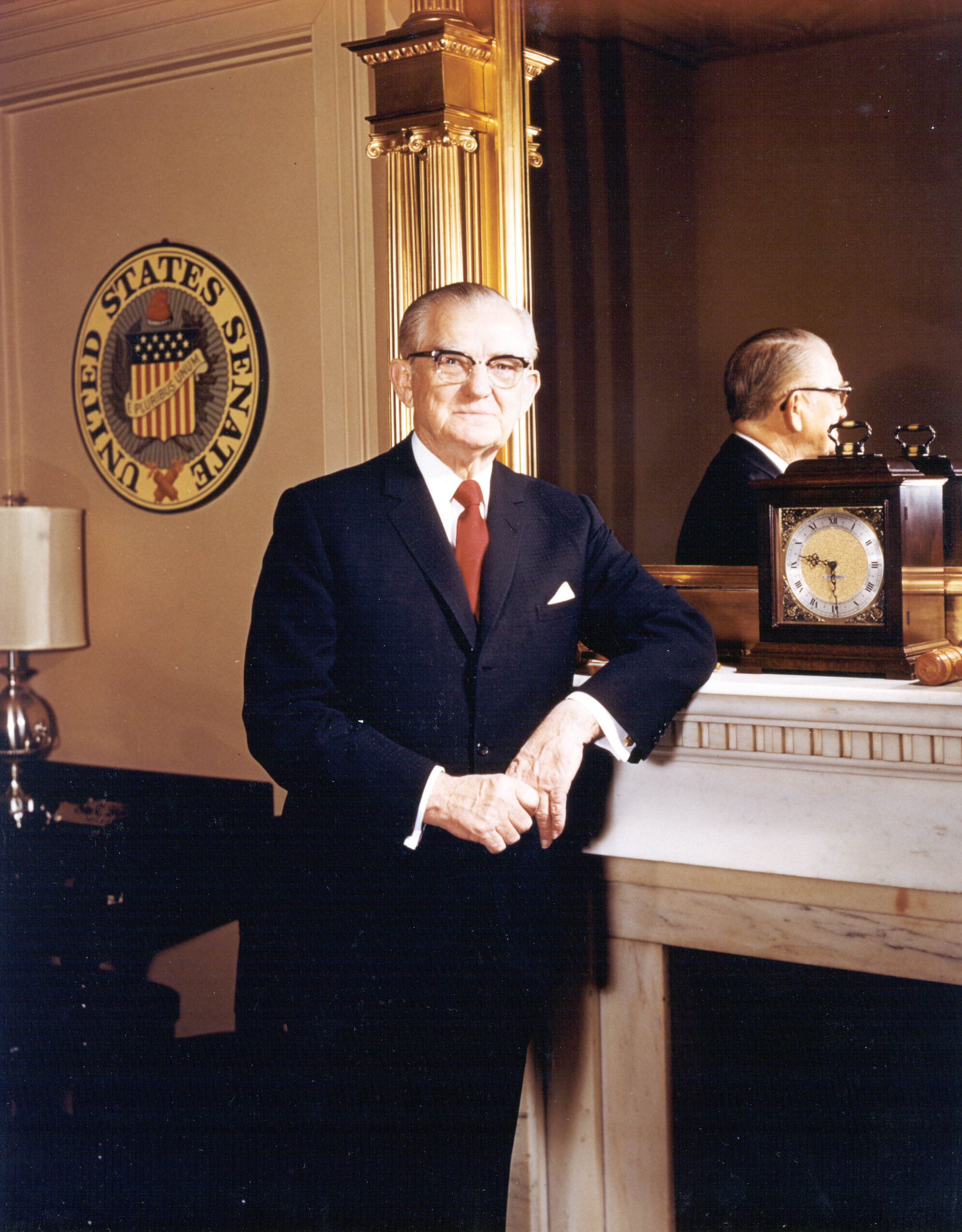| Senator John C. Stennis |
|
It was his way of letting them know that his principles and values were much more important than winning an election. Despite the fact that none of the suggested tactics were in any way unethical or illegal, his personal character and integrity would not be compromised, even slightly. He would not engage in anything he considered in the least bit deceptive, no matter the consequences. John Stennis offered himself for public office 13 times during his 60-year political career, and never lost. He took his final breath on April 23, 1995 and slipped quietly away from the world he had impacted greatly. He accumulated immense power and influence during his 93-year lifetime, and used it to benefit those with whom he always said the power ultimately resided: the people. He never lost perspective through a political career that spanned six decades and took him to the highest pinnacles of power in the legislative branch of the United States government. His leadership and wise counsel are sorely missed, but we continue to have the one thing we need most: his example. To virtually everyone who knew him personally, John Stennis was a role model. Not only to his colleagues in the Senate, who called him a "Senator's Senator," but to all who admired the way he lived his life. For those who labor in fields of public service, his example is especially meaningful and applicable. John Stennis demonstrated the qualities and characteristics Americans desperately want, and deserve, in their public officials. Integrity, courage, commitment to duty, and hard work are among the principles that mark the life and career of John Stennis. At the root was his unwavering faith in God and love for people that drove him to overcome obstacles and persevere through physical hardships that would have overwhelmed most. John Stennis served in the United States Senate nearly 42 years, the second-longest tenure in the history of our nation. From his election to the Mississippi House of Representatives in 1928, to his retirement as President Pro Tempore of the United States Senate in 1989, he was under continuous oath of public office. His achievements are legend. It is truly remarkable that throughout this long and highly productive career, his honesty and integrity never came into question. Senator Stennis never stopped marveling at the beauty and majesty of the dome that towers above the United States Capitol where he spent so many long days and nights. He often remarked on its significance as a symbol of freedom and democracy, not only for Americans, but for people throughout the world who look to the United States as a nation that stands for what is right and just. "We must never let it become common in our sight," he would say as he gazed admiringly at the brightly illuminated dome against the night sky. The life and career of John Stennis is also a monument to what can be achieved through public service. We need to illuminate his example, and hold it high for others to follow. Surely, it will never become common in our sight.  JOHN C. STENNIS BIOGRAPHICAL HIGHLIGHTS
|



 In his final United States Senate re-election campaign in 1982, John Stennis was faced with the most challenging race since his first Senate election in 1947. At an early campaign strategy meeting, he was bombarded with advice from campaign consultants on what to expect from the opponent and what would be required to win the race. He listened politely to the authoritative statements from the campaign experts who prefaced each imperative with: "To win, we will have to do this." When the consultants paused to catch their breath, Senator Stennis seized the opportunity to inform them of a point he considered very important. "There is one thing you really need to understand before we go any further," he told them as he looked each one in the eye around the table. "We don't have to win."
In his final United States Senate re-election campaign in 1982, John Stennis was faced with the most challenging race since his first Senate election in 1947. At an early campaign strategy meeting, he was bombarded with advice from campaign consultants on what to expect from the opponent and what would be required to win the race. He listened politely to the authoritative statements from the campaign experts who prefaced each imperative with: "To win, we will have to do this." When the consultants paused to catch their breath, Senator Stennis seized the opportunity to inform them of a point he considered very important. "There is one thing you really need to understand before we go any further," he told them as he looked each one in the eye around the table. "We don't have to win."